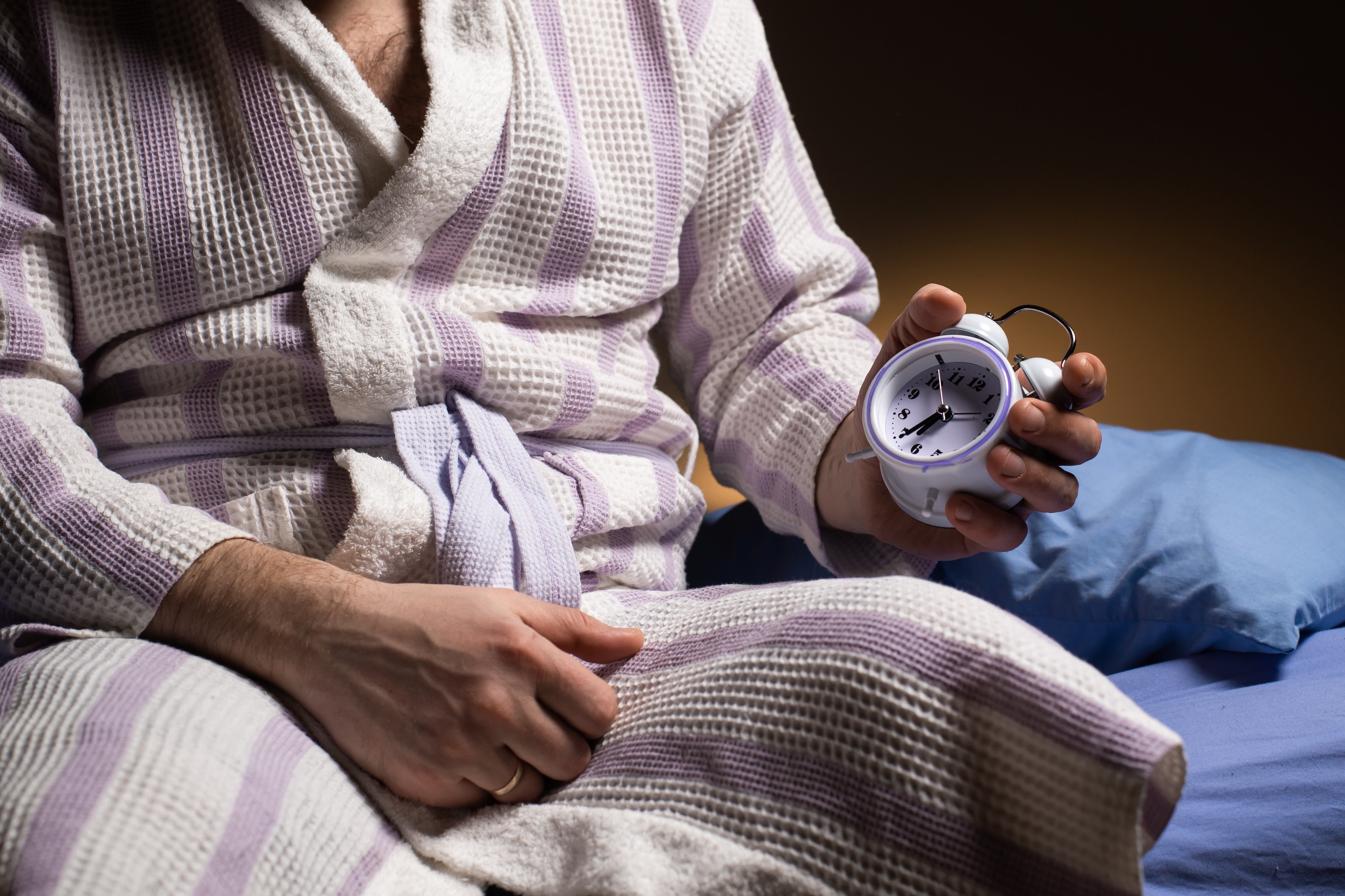Understanding the Importance of Testosterone in Men's Health
Ever wondered why some men age gracefully while others don’t? Why do a few men experience a decline in their libido, energy, or overall health as they age? Some claim that the average testosterone levels have been dropping by 1% per year since the 1980s. Low testosterone is often missed by doctors, and it is estimated that 40-50% of all men above the age of 45 suffer from low testosterone levels.
Testosterone is the male sex hormone produced mainly by the testicles (testes). Hence the name, testosterone. Testosterone is one of the common androgens, which are a sex hormone group in men. In Latin, “Andro” means “male” and “gen” means “something that produces or causes”. Testosterone serves the purpose of managing sexual performance and is also responsible for transforming a male child into a man. Did you know that it also the best fat burner for men?
Surprisingly, testosterone is also present in women! It is produced by the ovaries in much smaller quantities as compared to men. The normal measurement for testosterone in women is 15 to 70 ng/dL (nanograms per decilitre) while for men it is 300 to 1,000 ng/dL. In women, testosterone is responsible for muscular growth, reproduction and keeping the body healthy.
The role of testosterone in men's health
Along with the development of the male sex organs, Testosterone serves various other functions such as:
-
Developing male traits or characteristics during puberty such as deepening of the voice, growth of facial, armpit and pubic hair.
-
Regulating libido.
-
Growth of bone density and muscle mass.
-
Distribution of fat.
-
Production of red blood cells and sperm
-
Testosterone has a significant impact on anxiety. It tends to reduce anxiety in men and women due to its anxiolytic effect.
-
Men and women with depression have low testosterone levels than what is considered to be normal. It is seen that with the standard treatment, the levels tend to normalize.
-
A decline in memory, spatial cognitive abilities and general cognition is associated with the decline in testosterone levels with ageing.
-
It is observed that testosterone supplementation helps in improving learning and memory in men in andropause and postmenopausal women.
-
It is indicated that a change in testosterone levels also affects mood.
What regulates testosterone?
Hypothalamic-Pituitary-Gonadal (HPG) Axis consists of the hypothalamus, pituitary gland, and testes. It is a controlled system which regulates the testosterone in human bodies through a feedback loop and negative feedback mechanism.
Feedback loop:
A part of our brain called the hypothalamus releases gonadotropin-releasing hormone (GnRH). It signals the pituitary gland to release luteinizing hormone (LH) and follicle-stimulating hormones (FSH). These hormones are responsible for stimulating the testes to produce testosterone.
Negative feedback mechanism:
Testosterone levels are regulated through a negative feedback mechanism. Hypothalamus and the pituitary gland reduce the release of GnRH, LH and FSH to decrease the production of testosterone when it reaches a sufficient level.
How does low testosterone affect men’s health?
-
Decreased libido
-
Low energy levels
-
Mood disorders
-
Loss of muscle mass and strength
-
Weight gain and increase in body fat
-
Reduction in bone density and increased risk of Osteoporosis
How to maintain optimal testosterone levels?
There are certain practical measures one can take to maintain the testosterone levels such as:
Regular physical activities:
Though the mechanism is not well understood yet, studies have shown that engaging in regular physical activities and resistance training for at least 3 days a week helps in sightly boosting and maintaining testosterone levels. Following are 10 of the many exercises and training techniques that are recommended to maintain testosterone levels:
-
Squats
-
Deadlifts
-
Bench Presses
-
Overhead Presses
-
Pull-ups/chin-ups
-
Lunges
-
Push-ups
-
Sprints
-
Hip Thrusts
-
Plank Jacks
Stress management and sleep:
Lack of sleep affects the stress-related hormone Cortisone. A higher amount of Cortisone can cause low testosterone levels. One study reveals that less than 5 hours of sleep leads to a drop in testosterone levels and an increase in mood swings. Seeking social support, meditation, and mindfulness practices are some ways to manage stress.
Healthy and nutritious diet:
A balanced diet plays a role in the production of testosterone and maintaining the balance of hormones. So, what food helps in maintaining testosterone levels in men?
Zinc-rich foods:
Poultry, pumpkin seeds, sesame seeds, sunflower seeds, mushrooms, etc.
Foods high in Vitamin D:
Salmon, fortified dairy products, egg yolks, oranges, mushrooms, cheese, etc.
Healthy fats and Omega-3 rich foods:
Avocados, nuts, seeds, olive oil, fatty fish, etc.
Herbs that increase testosterone:
Ginger, garlic, methi (fenugreek), ashwagandha, etc.
Limiting alcohol consumption:
Consuming excessive amounts of alcohol can cause hormonal changes that are short-term and long-term. Studies have shown that consuming alcohol has a negative impact on the production of testosterone. There are many in the fitness world who might want to boost their testosterone levels as it helps in increasing muscle mass and is a best fat burner for men.
How to increase testosterone levels?
If you are diagnosed with low testosterone levels, simply following the steps mentioned above is not enough. They can certainly help in maintaining the levels but won’t show significant improvement in the testosterone levels. But don’t worry! Following are the certain recommended measures to improve testosterone levels in men:
Testosterone replacement therapy (TRT):
TRT is recommended for those who have clinically low testosterone levels. In this therapy, there are testosterone tablets for men consumed orally, or injected directly into muscles, or implanted in soft tissues as pellets. It is extremely important to consult a healthcare professional as there are several risks of TRT and to determine whether you are suitable for this therapy or not.
Herbs and natural supplements:
There are several herbs that increase testosterone levels such as methi (fenugreek), ginger, garlic, ashwagandha and so on. Natural supplements made from such ingredients are curated for specific purposes. For example, Andropique is a natural testosterone booster. It uses methi (Fenugreek) for testosterone. Andropique testosterone booster is clinically proven to increase free and total testosterone levels within the physiological limitations of the male body. Using a natural supplement is a safer option compared to TRT. However, it is recommended to consult a healthcare professional before starting any natural or ayurvedic testosterone booster.
Lifestyle modifications:
As discussed earlier in the article, there are certain lifestyle adjustments you can make to slightly boost and maintain the optimal testosterone levels such as regular exercise, healthy eating, stress management techniques and sufficient sleep.
Takeaway:
It can be said that testosterone plays a major role in men’s health and well-being. It affects mental health, sexual development, growth spurt during puberty and so on. Having testosterone deficiency can cause several issues from heart disease to infertility. On the other hand, maintaining healthy testosterone levels helps improve muscle mass, bone density, regulated libido, cognitive function, and better emotional health. You can maintain testosterone levels by making some lifestyle modifications. Medical intervention is recommended only if necessary. It is always advised to consult a healthcare professional before you decide which is the best testosterone booster supplement for you. They are made from various ingredients and herbs that increase testosterone or TRT to increase your testosterone levels. Consider making simple lifestyle changes such as incorporating regular workouts, making better food choices, using stress management techniques, and getting adequate sleep.References:
-
https://muscleandbrawn.com/statistics/12-testosterone-level-statistics-graphs-and-figures/
-
https://www.healthline.com/health/womens-health/do-women-have-testosterone
-
https://www.imaware.health/blog/does-exercise-increase-testosterone-levels
-
https://www.tarladalal.com/article-top-22-indian-veg-food-sources-of-zinc-222


